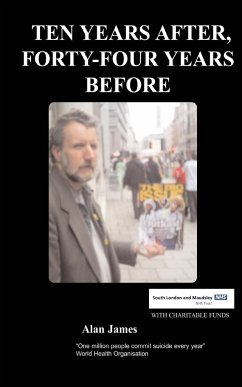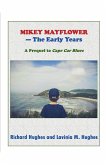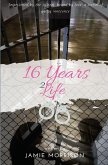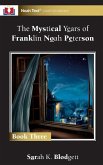by Alan James ISBN: 978 1 84747 005 8 Published: 2006 Pages: 90 Description Alan James is Chipmunka's local Big Issue seller. Chipmunka CEO Jason Pegler met Alan in November 2005 on his pitch in Moorgate, London. Jason was so impressed with Alan witticisms and strength of character that he encouraged him to write about his experiences - 'Ten Years After, Fourty-Four Years Before' is the result. Following a nervous breakdown, Alan became homeless and started selling the Big Issue. This book details Alan's experiences of selling 'The Issue' all over the UK for over ten years, it describes the characters he has met and some of the situations he has encountered. Alan's experiences are rich and varied and his is a delightfully engaging story. He describes in much detail the places he visits, giving this book the feeling of a travel... with a different perspective! About the Author James was born and bought up in Sunderland, Tyne and Wear. He left grammar school in 1969 with 6 O Levels and two A Levels. In the same year he went to Peterlee Jazz Club, Co Durham, to see 'Ten Years After', just after their legendary appearance at Woodstock. James attended teacher training college in 1971, but dropped out to sell paintings door to door. He dropped back in again in 1980 and got a second class honours degree in Humanities at Sunderland Poly in 1983. James has only ever used this degree to get a job once, in Greece from 1991- 93, where he taught English in Athens. Then after surviving a nervous breakdown James came back to England, where he has been selling the 'Big Issue' all around the UK and for most of the last ten years. Book Extract Someone at Nailsea market had told me there was an antiques market and Thornbury on Saturdays. This was unusual for a market to be held on a weekend but logical, as there were more people about to buy the merchandise, and hopefully, the Big Issue. Thornbury is about 10 miles north of Bristol on the Gloucester Rd, and near the Severn Road Bridge. It is a small town or large village, whatever you prefer, in a beautiful rural location. After the last experiment in Weston-Super-Mare I travelled there that first Saturday with some trepidation, half expecting a vendor to be pitched there already. but thankfully there was not. I say that, because I had a walk around the centre first to find an appropriate pitch, and concluded that there was only one place to stand: on the High Street pavement, where only one side was wide enough, with enough room for people to stop and buy. I pitched outside a department store on the High Street, about 50 miles away from a busker and his dog. This presented no problem to either of us as he wasn't selling the issue and I wasn't busking. I had an introductory chat with the busker and we got on well from the start. If you are going to work close to someone for 3 hours it helps if you like the music. This guy had a banjo and was playing bluegrass music from the Appalachian mountains of eastern USA. I always regard bluegrass as American folk music, and one lad who eventually went back to her roots and recorded a bluegrass album was Dolly Parton. The banjo-picking earned the busker a decent living and Thornbury was his Saturday pitch. I sold my magazines quickly and we both did well despite our close proximity. I put this down to the generosity and kindness of the Thornbury residents and visitors. Back in the 70s, I used to sell door to door and I always seemed to benefit more from rural than urban locations, because I think folks outside the city seem to be more friendly, as there is more of the community spirit that Thatcher tried so hard t destroy.
Hinweis: Dieser Artikel kann nur an eine deutsche Lieferadresse ausgeliefert werden.
Hinweis: Dieser Artikel kann nur an eine deutsche Lieferadresse ausgeliefert werden.








